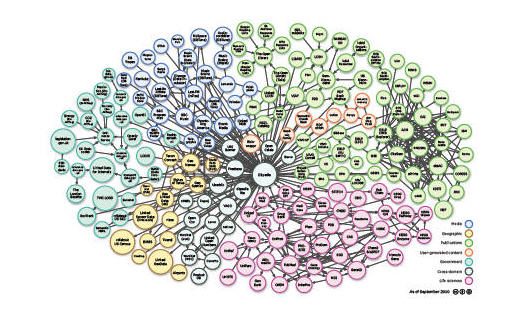Professor Grant McKenzie will co-host a workshop on geo-knowledge graphs at the 13th International Conference on Spatial Information Theory in L’Aquila, Italy on September 4th, 2017.
Knowledge graphs, i.e., making semantically annotated and interlinked raw data available on the Web, has taken information technologies by storm. Today such knowledge graphs power search engines, intelligent personal assistants, and cyber-infrastructures. For instance, the publicly available part of the Semantic Web-based Linked Data cloud contains more than 150 billion triples distributed over 10000 datasets and connected to another by millions of links. Geographic data play a significant role in this cloud and knowledge graphs in general as places function as central nexuses that connect people, events, and physical objects. Consequently, geo-data sources are among the most central and densely interlinked hubs. Beyond their sheer size, the diversity of these data and their inter-linkage are of major value as they enable a more holistic perspective on complex scientific and social questions that cannot be answered from a single domain's perspective. Hence, knowledge graphs such as those implemented using the Linked Data paradigm bear potential to address many fundamental challenges of geoinformatics.
In this workshop we will discuss various aspects of geo-knowledge graphs ranging from their extraction and construction from unstructured or semi-structured data, issues of data fusion, conflation, and summarization, geo-ontologies, to query paradigms and user interfaces. By focusing explicitly on geo-knowledge graphs in general, we aim at broadening the focus beyond the Semantic Web technology stack and thus also beyond RDF-based Linked Data.




